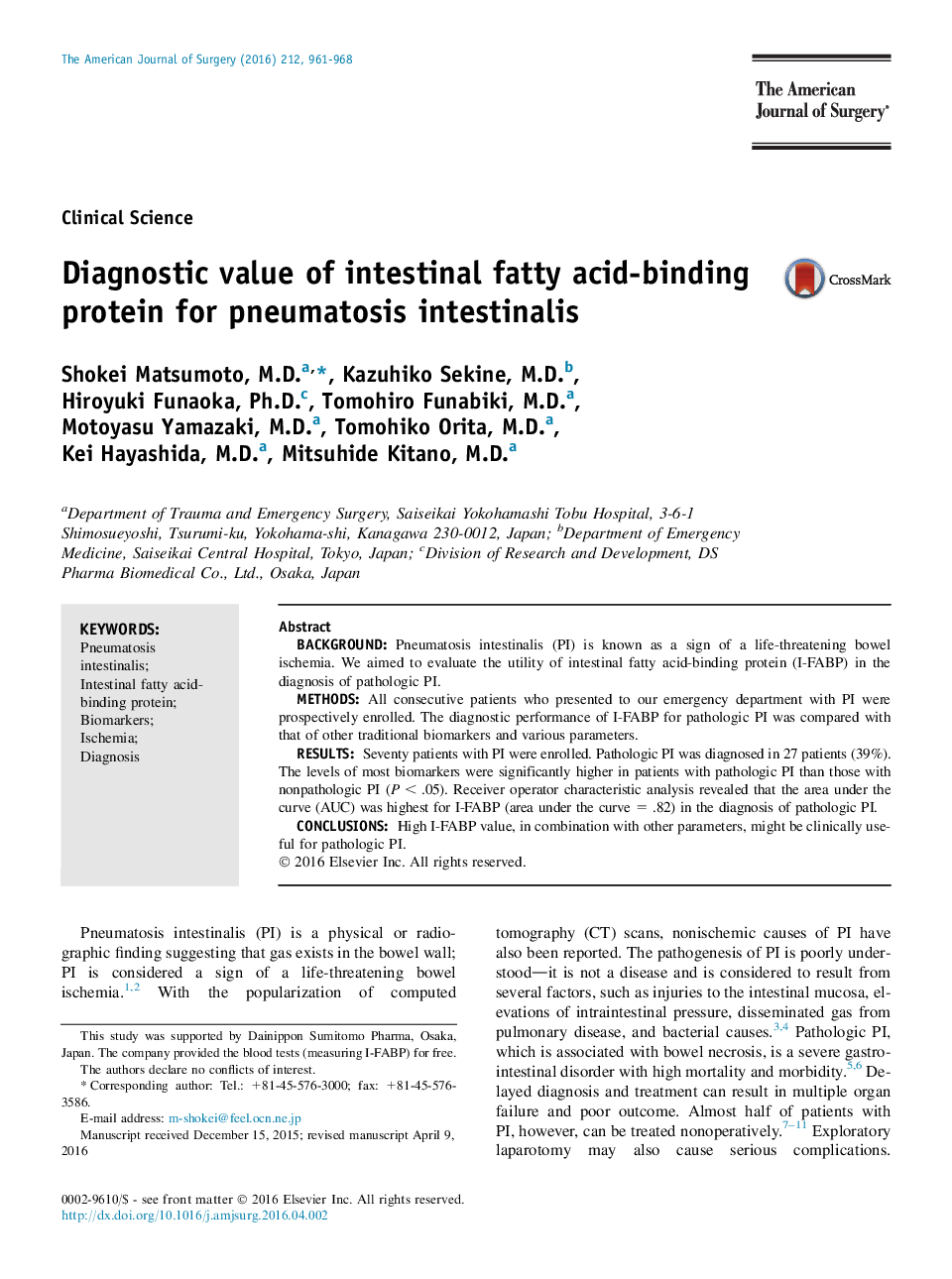| Article ID | Journal | Published Year | Pages | File Type |
|---|---|---|---|---|
| 5731429 | The American Journal of Surgery | 2016 | 8 Pages |
â¢Pneumatosis intestinalis (PI) is known as a sign of a life-threatening bowel ischemia.â¢Intestinal fatty acid-binding protein value was clinically useful for PI.â¢I-FABP in combination with hypotension is useful for determining need for surgical surgery.
BackgroundPneumatosis intestinalis (PI) is known as a sign of a life-threatening bowel ischemia. We aimed to evaluate the utility of intestinal fatty acid-binding protein (I-FABP) in the diagnosis of pathologic PI.MethodsAll consecutive patients who presented to our emergency department with PI were prospectively enrolled. The diagnostic performance of I-FABP for pathologic PI was compared with that of other traditional biomarkers and various parameters.ResultsSeventy patients with PI were enrolled. Pathologic PI was diagnosed in 27 patients (39%). The levels of most biomarkers were significantly higher in patients with pathologic PI than those with nonpathologic PI (P < .05). Receiver operator characteristic analysis revealed that the area under the curve (AUC) was highest for I-FABP (area under the curve = .82) in the diagnosis of pathologic PI.ConclusionsHigh I-FABP value, in combination with other parameters, might be clinically useful for pathologic PI.
